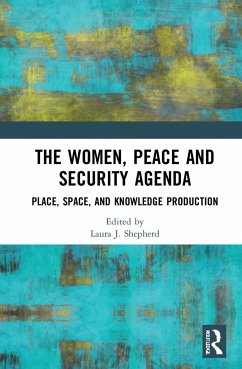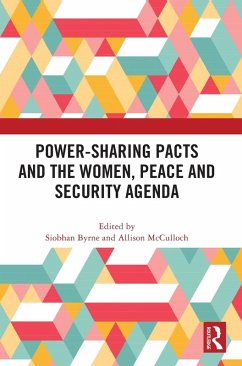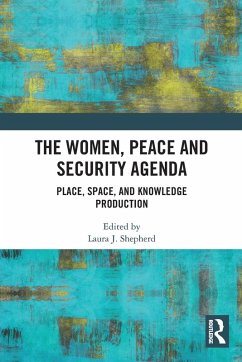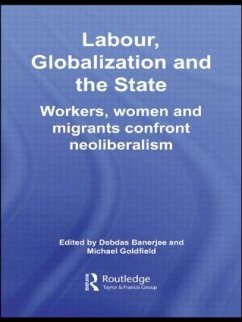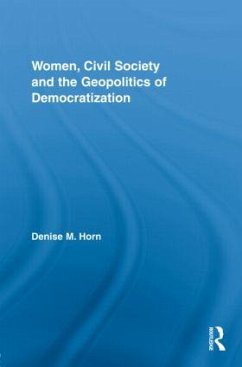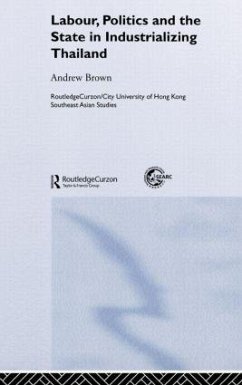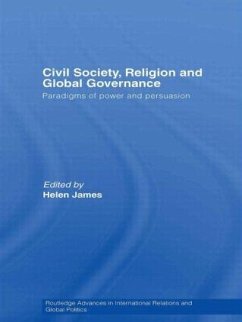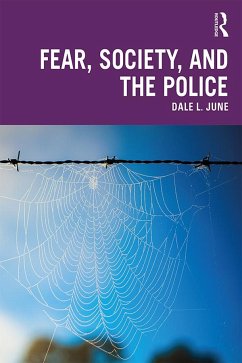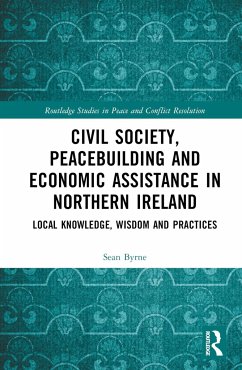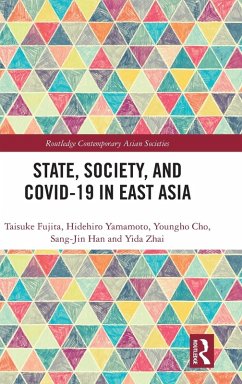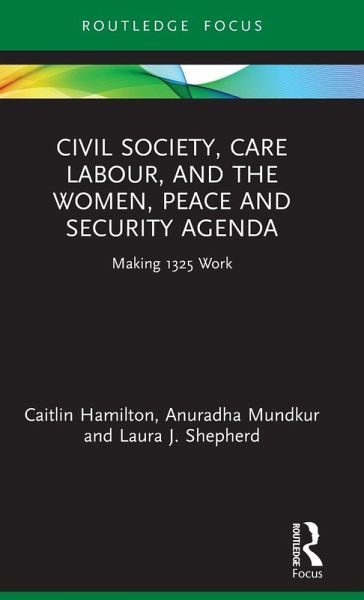
Civil Society, Care Labour, and the Women, Peace and Security Agenda
Making 1325 Work
Versandkostenfrei!
Versandfertig in 1-2 Wochen
64,99 €
inkl. MwSt.
Weitere Ausgaben:

PAYBACK Punkte
32 °P sammeln!
This book proposes that work on the Women, Peace and Security agenda undertaken by civil society actors can be interpreted as a form of care labour that nourishes and sustains the agenda - without which the agenda could not, in fact, succeed. The care labour of civil society is thus a condition of the Women, Peace and Security agenda's success. United Nations Security Council resolution 1325 is the foundation of a diverse and pluralising policy framework known as the Women, Peace and Security agenda. Over the 20 years since the adoption of the foundational resolution, despite sustained resista...
This book proposes that work on the Women, Peace and Security agenda undertaken by civil society actors can be interpreted as a form of care labour that nourishes and sustains the agenda - without which the agenda could not, in fact, succeed. The care labour of civil society is thus a condition of the Women, Peace and Security agenda's success. United Nations Security Council resolution 1325 is the foundation of a diverse and pluralising policy framework known as the Women, Peace and Security agenda. Over the 20 years since the adoption of the foundational resolution, despite sustained resistance from some quarters and a general lack of adequate resourcing and political will, the agenda has continued to see many successes, and to achieve elements of political transformation large and small. This book explores how the supporting constituency of the agenda has 'made 1325 work'. Based on new interviews with representatives of diverse civil society organisations working on WPS, the book offers a novel intervention into WPS scholarship, which has thus far paid relatively little attention to the labours of civil society actors working on WPS, particularly on an individual level. The authors consider the motivations, pressures and frustrations experienced by WPS civil society actors, as well as the goals and challenges. This book is based on original research and will be of interest to scholars, policymakers and practitioners working on WPS specifically, and those working in Political Science, International Relations, Development Studies, and on the global governance of peace and security. It will also be relevant for students in WPS-focused programs and of peace and security studies more broadly.




